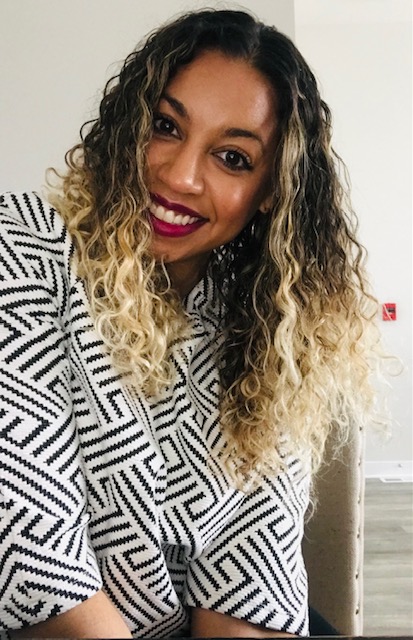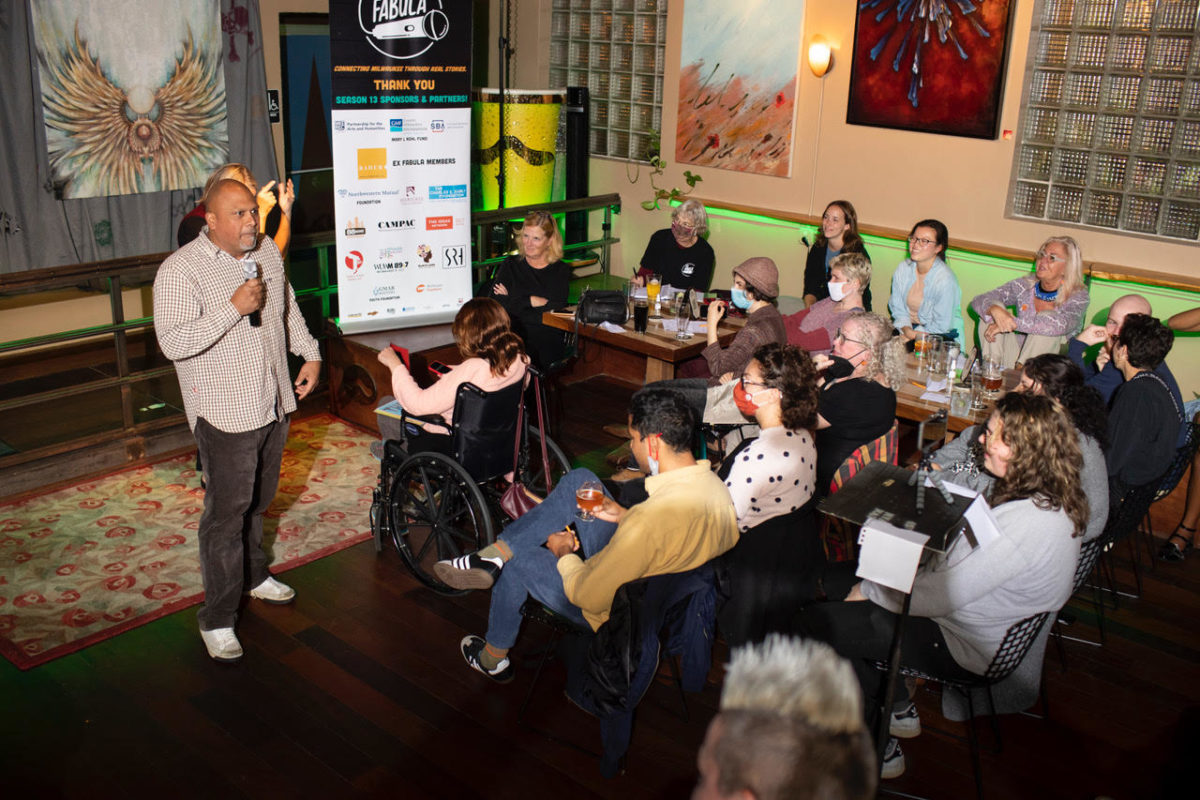Megan McGee was studying abroad in Spain when she learned a valuable lesson: There’s more than one way to experience the world.
While strolling through the market one day, she found herself feeling perturbed after a merchant proceeded to pick apples on her behalf.
“I wanted to pick out my own apples,” McGee said. “I was having trouble with the cultural changes. Then I realized there’s more than one way for things to work. Since then, my idea of what is ‘normal’ has expanded.”
It was a moment that could have easily been passed off as mundane. Instead, the realization would stick with McGee for years to come, serving as a reminder that sharing and exploring the human experience — all sides of it — matters.
McGee is the executive director of Ex Fabula, a Milwaukee-based arts nonprofit focused on connecting the community through the art of storytelling. The organization presents storytelling workshops, StorySlams, and community collaborations at venues around the city. Ex Fabula, which means “from stories” in Latin, aims to provide a place “where people listen to each other, feel heard, and grow in empathy and understanding.”
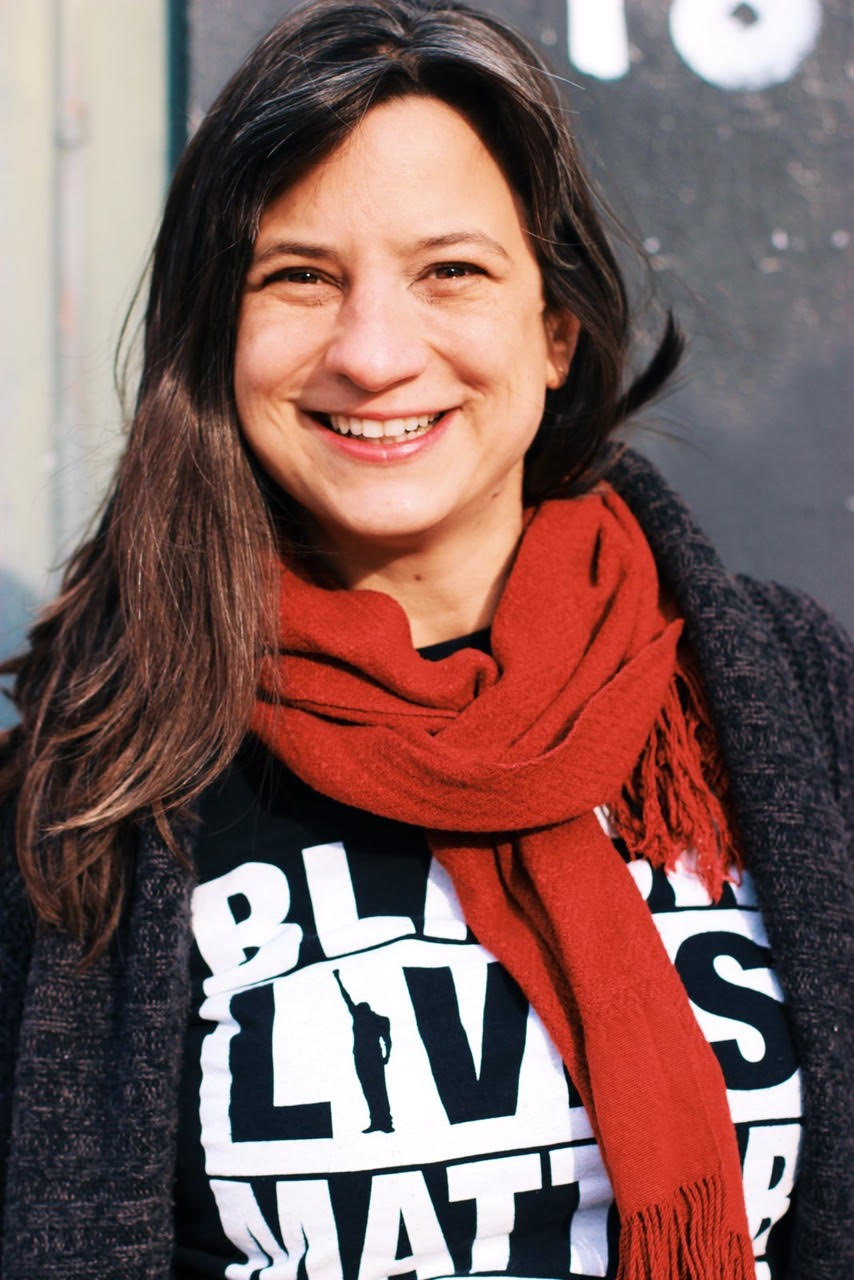
Megan McGee. (Photo by Nicole Acosta)
“Our mission is to connect Milwaukee through real stories,” McGee said. “What are the assumptions we make that are not good? We are all about community voices and the power that can happen when we have spaces to be vulnerable and really listen to each other.”
Ex Fabula launched as a grassroots project between five friends in 2009. For several years, the group volunteered their time to put on storytelling events. After incorporating as a nonprofit in 2011 and participating in a six-month residency at John Michael Kohler Art Center, the organization expanded to develop its workshops series and bilingual programming.
In Season 5, McGee became Ex Fabula’s first official full-time employee, a seismic departure from her role as a lean process consultant. McGee called quitting her job a “go big or go home moment.” As their events gained steam, the group began to realize specific voices weren’t being heard and shifted their focus to including stories outside of their “white, college-educated” circle.
Since then, Ex Fabula events have included storytellers from all corners of the city and tackled a rainbow array of topics via its storytelling workshops and on the stage, including family, mental health, disability, work, grief, cultural identity and spirituality.
While some people may view Ex Fabula’s events as “a fun night out,” McGee said internally, the organization is intentional in its efforts to give community members a voice — and working to shine a light on the work needed to help the city better unite.
“Stories are like the gateway to culture,” she said. “We’re trying to find our shared humanity and create a world we all want to live in. I want everyone in the region to feel heard.”
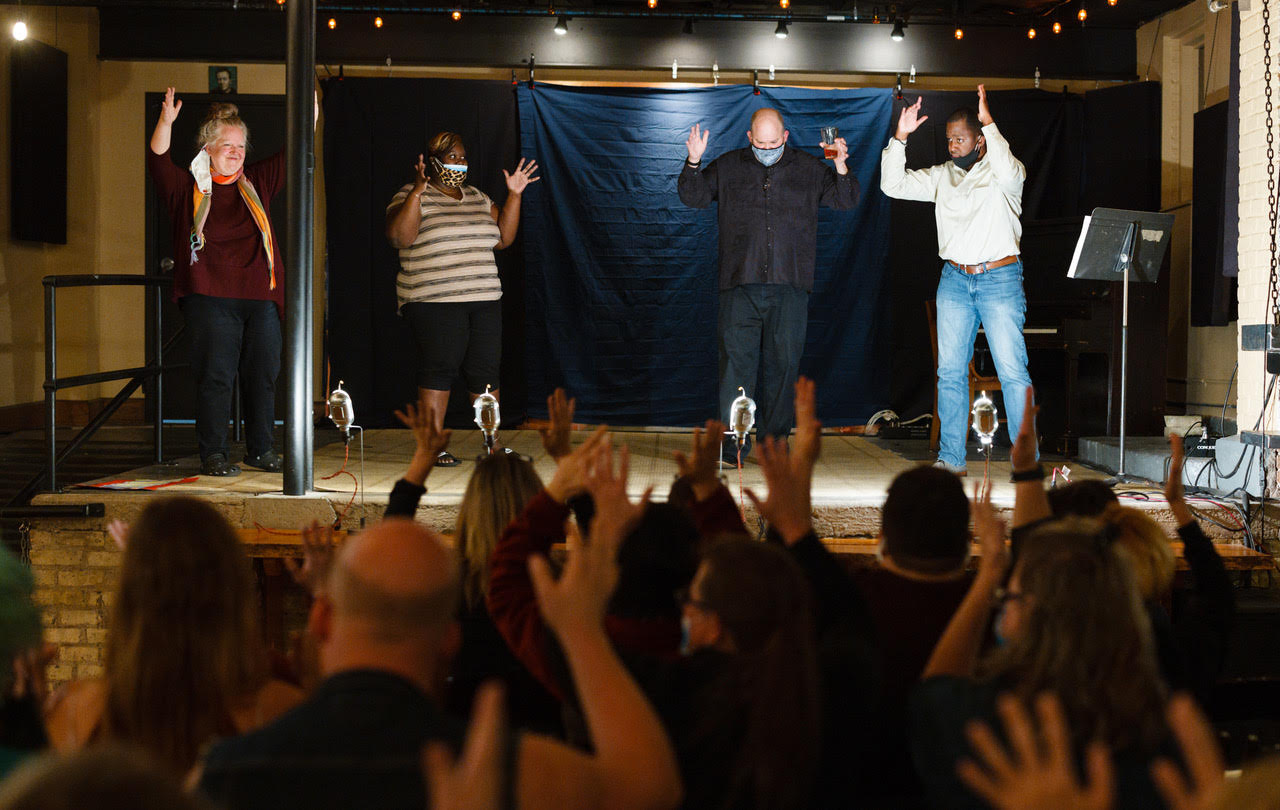
Ex Fabula’s Deaf StorySlam in September 2021. (Courtesy photo by Milwaukee Public Library
That thread has become even more important in light of the pandemic and civil unrest. It’s also one of the reasons Ex Fabula launched Brave Space, an affinity workshop space for Black, Latinx, Asian, Indigenous and other people of color to share stories. McGee noted that hearing others’ stories has even helped her to question and unlearn some of her own biases, like what it means to be “professional,” or how to be an ally to causes.
“We all have our narratives where we might judge each other, but how do we use stories to have those conversations that we need to have?” McGee asked. “The arts and stories can set the stages for all of us to be human. The arts can be a tool to create social change. Our long-term goal is a society where everyone is treated with dignity and respect.”
So far more than 1,600 stories have been shared through Ex Fabula events, which have been attended by nearly 40,000 people, per McGee. The storytelling collective was also honored with a Unity Award from Milwaukee Magazine in 2021. But the executive director said she won’t be satisfied until more people bring their stories to the table.
“Storytelling doesn’t accomplish one thing, it accomplishes many things,” McGee said. “If you really listen to people, you can feel how the world really works. We are all strong and powerful and amazing but it’s easy to forget that with the outside world. Stories allow us to see each other.”
Subscribe to This Week in Milwaukee Rising:
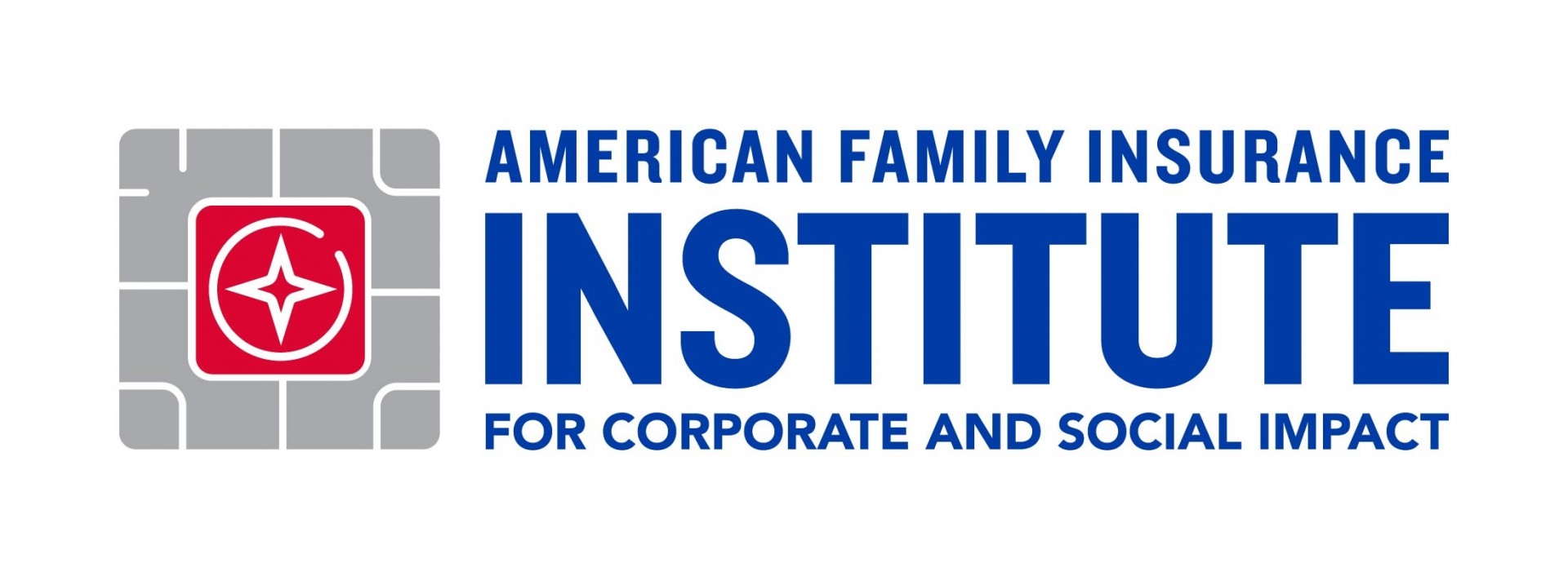
This article appears as part of This Week in Milwaukee Rising, a weekly newsletter from Technical.ly highlighting the innovators bringing a more just, equitable and dynamic Milwaukee economy. Subscribe here. The series is underwritten by American Family Insurance Institute for Corporate and Social Impact.
Join our growing Slack community
Join 5,000 tech professionals and entrepreneurs in our community Slack today!
Donate to the Journalism Fund
Your support powers our independent journalism. Unlike most business-media outlets, we don’t have a paywall. Instead, we count on your personal and organizational contributions.

Mayor Bowser: Tech can help DC build a stronger, more self-sufficient economy

Comcast introduces ultra-low lag Xfinity internet that boosts experiences with Meta, NVIDIA and Valve

Maryland firms score $5M to manufacture everything from soup to nanofiber

